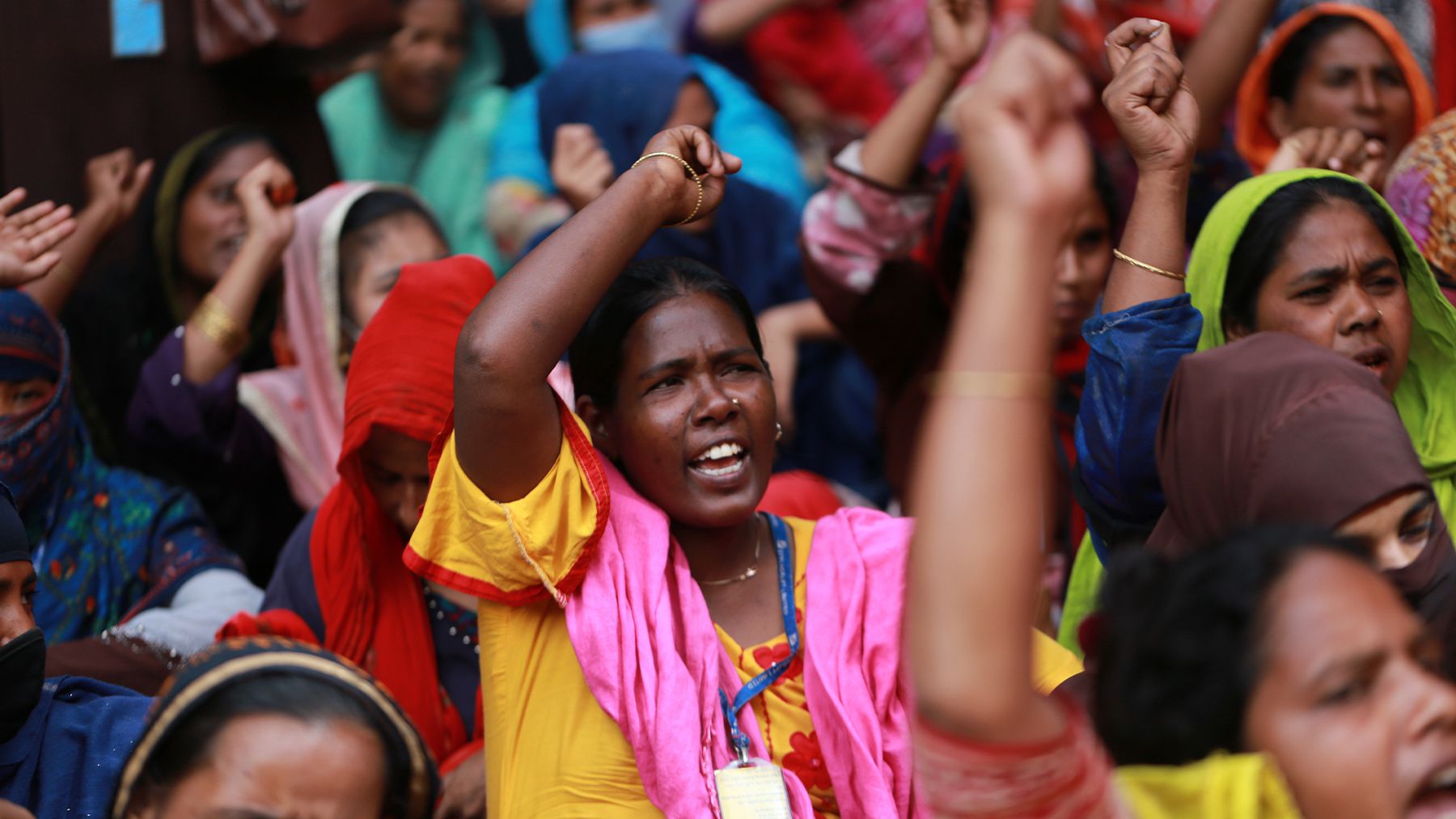
March 2020 to December 2021 was a period of profound flux, laced with a multitude of challenges.
In the fashion industry, sudden pandemic-induced lockdowns left brands scrambling to decipher a swiftly changing market. They cancelled orders, then re-upped their buys as it became clear house-bound consumers still wanted to shop. Supply chain snarls spiked shipping costs and the price of raw materials. Suppliers faced added challenges — and expenses — adjusting to operate in a way that kept workers safe.
But amid the upheaval, there was a constant: the price brands paid their suppliers to produce garments like lockdown-friendly sweats and hoodies remained largely unchanged, according to a survey of 1,000 manufacturers in Bangladesh published in a new report by the University of Aberdeen and UK-based fair trade campaign group Transform Trade.
More than three quarters of respondents said that by the end of 2021, western brands like Gap and H&M weren’t paying any more for garments than at the start of the pandemic. Nearly one in 10 said they were being paid below the cost of production.
In the face of rising costs, this price stagnation made it harder for manufacturers to pay minimum wages to their workers and contributed to job losses. Workers who kept their jobs faced bullying and harassment to increase the pace of work and were forced into unpaid overtime to meet tight deadlines as demand shot up after an early pandemic drop-off, the research found.
The findings reflect how directly brands’ purchasing practices can affect working conditions, with worthy commitments to ensure fair labour standards and pay decent wages often in conflict with demand for low-cost fast fashion and the pursuit of higher profits.
The pressure on manufacturers hasn’t diminished over the last 12 months.
When demand dipped in response to inflation and economic headwinds this fall, some big customers asked suppliers to hold deliveries for as much as a year, the Bangladesh Garment Manufacturers and Exporters Association’s president, Faruque Hassan, told me on a trip to Bangladesh in November. Many brands pushed for discounts, with some manufacturers accepting prices that meant they were operating in the red just to keep factories running, industry insiders told me at the time.
The issues aren’t limited to the price of goods. Short lead times, poor planning or sudden changes to designs can lead to excessive overtime as factories scramble to meet inflexible brand deadlines. Abrupt cancellations can result in layoffs and threaten manufacturers’ ability to provide severance, according to a new summary of research on the impact of purchasing practices published by Better Buying Institute.
New regulations could change this dynamic, making brands more accountable for what happens in their supply chains and paving the way for workers’ groups and labour advocates to bring legal action against them when things go wrong.
The European Union is moving towards tougher due diligence requirements for brands, building on legislation already in place in countries like France and Germany. The New York Fashion Act, a bill currently being considered by the New York State Assembly, includes guidance on responsible purchasing practices. If passed, brands could be fined up to two percent of global revenue for failing to comply.
That kind of real financial risk may ultimately be what it takes to shift the balance of incentives so that pursuit of profit really is matched with pursuit of social good.
For more BoF sustainability coverage, sign up now for our Weekly Sustainability Briefing by Sarah Kent.



